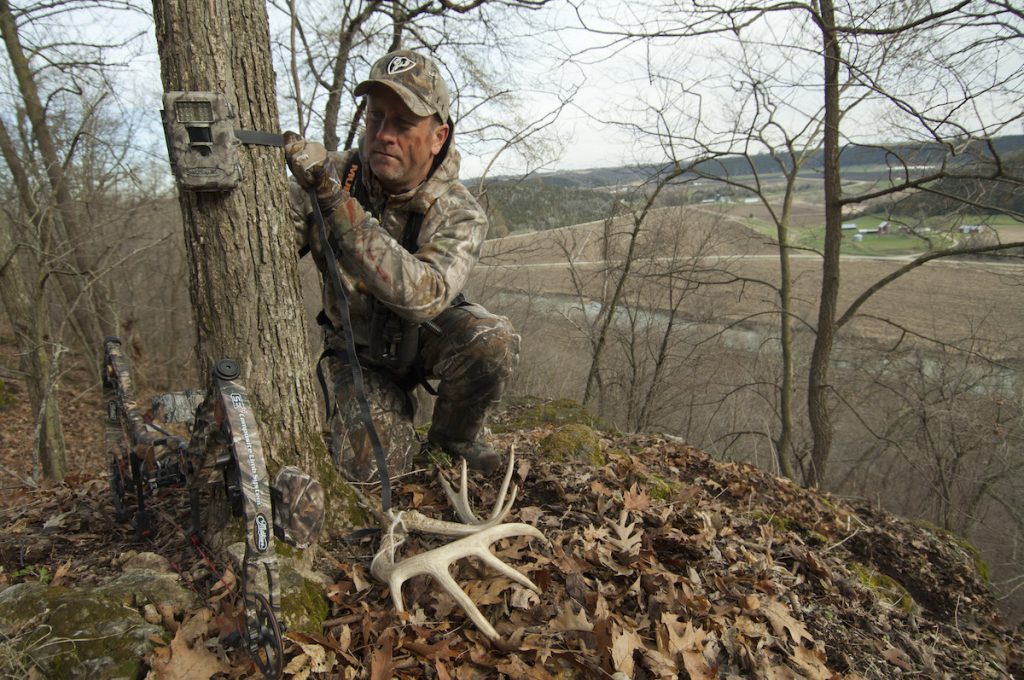
The Utah Wildlife Board decided this week to postpone its vote on a partial trail camera ban just one day after it began accepting public comments.
The original vote was scheduled to take place on September 30, but now the Board has decided to postpone that decision until “further surveys could be conducted on the issue.” No other reason was given for the delay.
The proposal, which was is being considered in response to a new law directing the Wildlife Board to make rules governing the use of trail cams, would have banned the use of transmitting trail cameras between July 31 and January 31. Transmitting cameras used for private security or agricultural purposes would be excepted, but any use designed “to take, attempt to take, or aid in the attempt to take big game” would be outlawed. Private landowners would not be excepted.
Cameras that store images on the device would still be legal, according to Colby Jones, the Big Game Coordinator for Utah’s Division of Wildlife Resources.
SEE ALSO: Get a Jump on Next Year’s Buck with the Fusion Wireless Trail Cam
Utah’s DWR claims it conducted a survey of 6,000 big game hunters and determined that 62% oppose the use of transmitting trail cameras, which it defined as “cameras that transmit images and footage in real time.”
The board also decided to delay a vote on the other big game proposals scheduled to be considered on September 30.
One of those proposals would have outlawed the use of night vision optics 48 hours before and after any big game hunt. The ban would include night-vision devices, thermal imaging devices, infrared-imaged devices and “other electronic devices that enhance the visible and non-visible light spectrum.”
“We just wanted everybody to be on the same footing during the hunt,” Jones said.
SEE ALSO: Four Mississippi Poachers Fined, Banned from Hunting
As with the trail cam ban, the board believes the proposal is in line with hunter sentiment.
“Overwhelmingly, the sentiment is that using [night vision devices] does not align with fair chase, and there’s a strong sentiment that the animal needs to have a chance — and fair chase is just that,” Jones said.
The DWR says that both bans are necessary in light of changes in both the night vision and cellular trail cam markets. Both technologies used to be cost-prohibitive for most hunters, but now they’re readily available.
“These weren’t popular in hunting until recent years,” Jones said of night vision optics. “But as prices drop and they become more affordable, it’s starting to become popular.”
The board has not announced when it plans to vote on these measures, but a spokeswoman for the DWR said that it still plans to approve the rules in time for the 2022 hunting season.


the Utah Wildlife Board introduced proposals to regulate the use of trail cameras and night vision devices during hunting seasons. However, just one day into the public comment period, the board decided to postpone these proposals.
More anti gun bull
So, is night hunting legal there? If not, why the concern about night vision? I’ve certainly scouted on full moon nights for decades. I think the whining comes from those who don’t get off their ass and do leg work.
All in all, this is a non-enforceable law, and more likely would be used as a “gotcha” law against private landowners on unrelated matters. It sounds like anti-hunters are trying to make a move.
OK, I get the “fair chase” argument, BUT it’s contradictory to say in the same report that (a) “we just wanted everybody to be on the same footing” AND (b) the various technologic advances are becoming more affordable and “readily available.” What’s next? Banning certain rifle scopes and bows because some hunters can’t afford them? No more custom rifles until everybody can afford one?